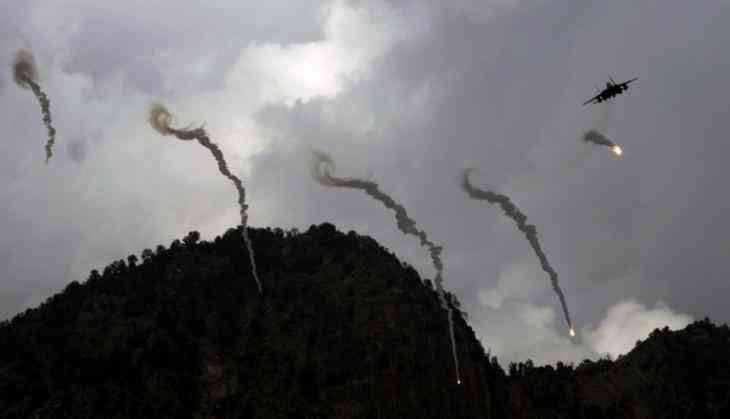
Pakistan's airstrike within the territory of Afghanistan on April 16 this year has created a diplomatic row between the two countries.
The airstrikes blatantly violated international law.
Hamid Pakteen, writing in Afghan Diaspora Network, said that these airstrikes were supposedly in retaliation to 'violent acts' of the Tehreek-e-Taliban Pakistan (TTP) or the Pakistani Taliban.
However, this abrupt use of overwhelming force by Pakistan led to a total of 45 casualties, amongst them were 20 children, including 12 girls and 3 boys in Khost Province, and 3 girls and 2 boys in Kunar Province.
The Taliban regime, Afghanistan's de facto Government, condemned the airstrikes and summoned Pakistan's ambassador in Kabul to hand over him a demarche.
As per international law, the above would be the case even if the 'government' in question came to power through unconstitutional means, till the time there is no rival entity with a constitutional claim.
That is precisely the reason that Naseer Ahmad Faiq, the Charge d'Affaires at the Permanent Mission of Afghanistan to the United Nations wrote to the President of the Security Council, that the airstrikes by the Pakistani Air Force inside Afghanistan constitute "aggression against the territorial integrity" of Afghanistan.
Pakistan's actions constitute a clear violation of international law, most flagrantly against the prohibition on the use of force or the threat of use of force as encapsulated in Article 51 of the UN Charter. A basic principle of international law is respect for sovereignty and international borders.
Similarly, a fundamental principle of international humanitarian law (the law of armed conflict) is that military force cannot be used against civilian targets. Arguably then, the Pakistani actions are not only contrary to customary and treaty law governing the use of force, but also constitute war crimes inasmuch as they are in utter defiance of the Geneva Conventions, said Pakteen.
Further, these strikes pose bigger threats to the troubled region of the Afghanistan-Pakistan border. In eastern Afghanistan, many feared that due to the recent airstrikes more violence would take place, perhaps escalating into a full-scale war.
Surprisingly though, this latest tailspin of Afghanistan-Pakistan relations come after the Pakistani Establishment had been handholding the Taliban regime post its takeover and assisting in finalizing the government formation.
(ANI)
Also Read: Imran Khan to be arrested once protective bail ends: Pak Interior Minister


